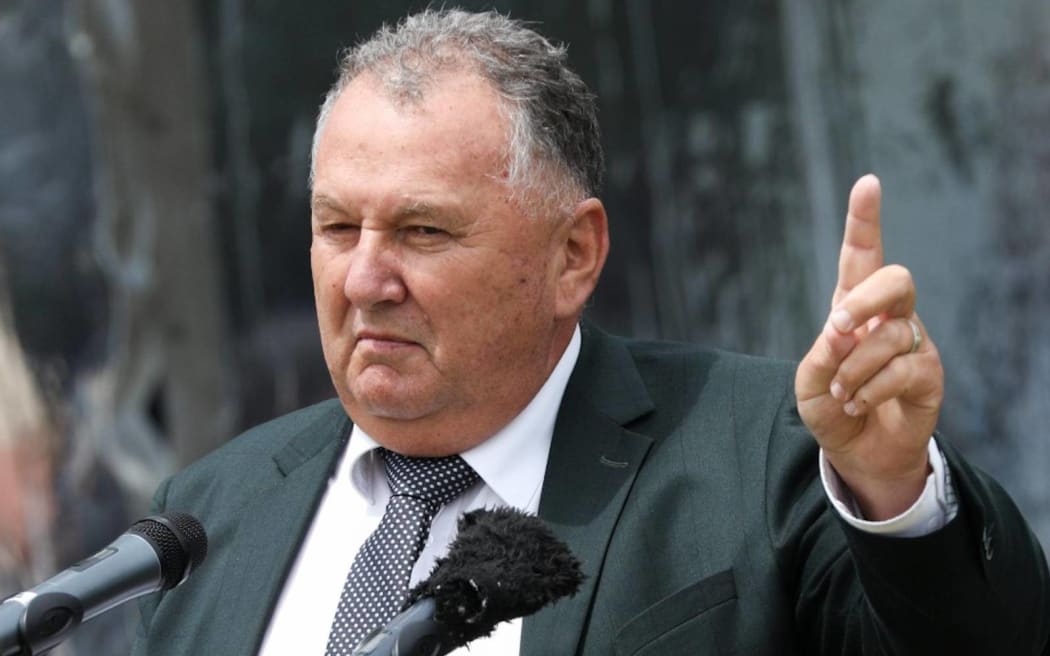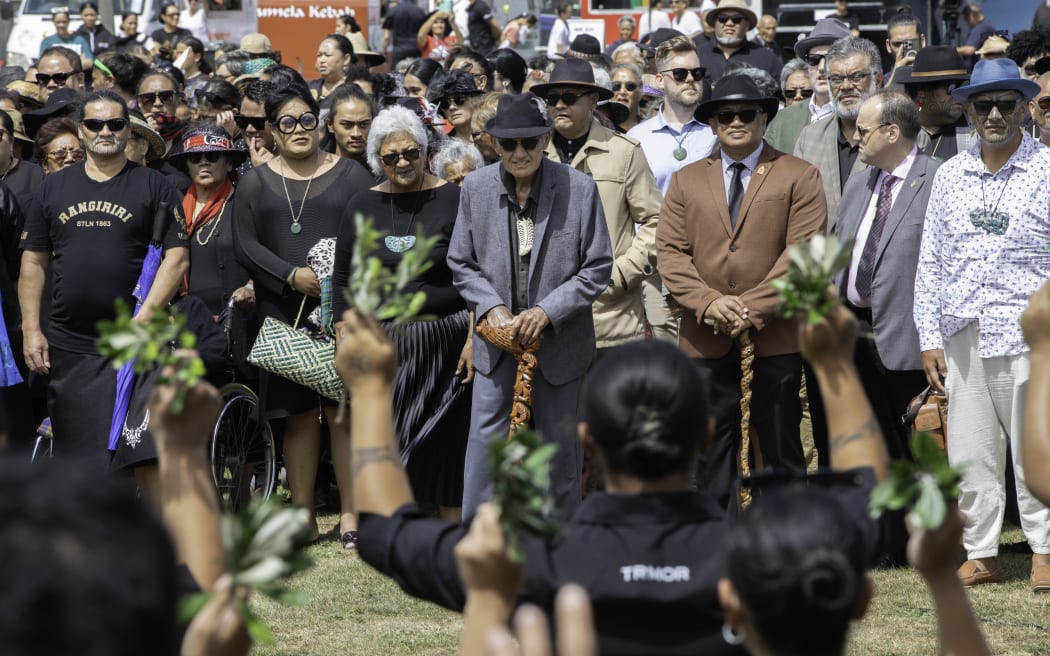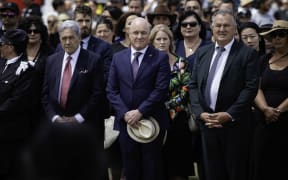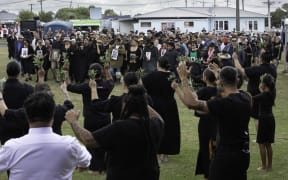
Shane Jones makes a point while speaking at Rātana. Photo: Angus Dreaver / RNZ
New Zealanders shouldn't fear debate when it comes to the Treaty Principles Bill, the New Zealand First deputy leader says.
Jones is encouraging Māori to debate him at Waitangi next month, especially those who heckled him at Rātana on Wednesday.
They had been disrespectful and could expect "a verbal lashing" if they tried it again, Jones told Morning Report.
Politicians from all parties except for ACT undertook their annual pilgrimage to Rātana near Whanganui for the political year's curtain-raiser.
The government was told not to interfere with Te Tiriti o Waitangi with Rāhui Papa, a representative of the Kiingitanga and Waikato-Tainui, saying Māori would not sit idly by if that happened.
Meanwhile, amid a climate of concern over ACT's Treaty Principles legislation, Prime Minister Christopher Luxon has been calling for calm over a bill he himself has said felt divisive.
And while Jones indicated his party would not support the Treaty Principles Bill beyond the first reading, he said the Waitangi Tribunal needed to be reviewed.
Jones said it was a robust day, however, the paepae (the place where the speeches were delivered) had been taken over by some who did not belong to the Rātana Church.
He said he had been insulted by a young man from Tūhoe and was confident it would not happen again because the speaker had breached the church's spirit of decorum.
"Their message is peace and unity and sadly some of the speeches from the paepae, from the welcoming bench, failed the test of the Rātana legacy.
"But that's politics and if people want to debate in a robust set of exchanges and obviously that's going to happen then please come to Waitangi - that was my message to them."
The young man had spoken in a "grossly inappropriate way", not shown respect to New Zealand First leader Winston Peters and himself "in a Māori sense" and could expect "return fire", Jones said.
He referred to the Seabed and Foreshore legislation when feelings and emotions also ran hot over an issue.
"But the most important thing is that the country voted for a reset. Now the final shape and form of the reset in respect of the principles of the Treaty of Waitangi - that's work in play.
"But it's best that people turn down the rhetorical hyperbole and engage in a constructive [way] that meets the needs of all New Zealanders."
No New Zealander should fear debate, he said.
There was a range of views on the purpose of the Principles of the Treaty and the roles the iwi and the Waitangi Tribunal would play over the next 15 years.
In regard to the Treaty Principles Bill, Jones said the Treaty was separate from the Principles - the latter had been promoted by Sir Geoffrey Palmer and the Labour Party from 1985 onwards.
The Treaty was the country's foundation document, however, it had been "distorted" by some decisions made by the courts and the Waitangi Tribunal whose members wanted to write a new constitution.
The Waitangi Tribunal's writ would be reviewed, as per the coalition agreement, he said.
Jones cited a figure of 60 to 70 percent of Māori children not going to school regularly which should be of more concern to Māoridom than "the rantings" of the Waitangi Tribunal, he said.
Reflection of frustration among Māori

Kīngi Tūheitia on the first day of Rātana 2024. Photo: RNZ / Angus Dreaver
Rātana Pā representative Te Taepa Kameta said the reaction to Jones on Wednesday was a reflection of the frustration Māori were feeling at present.
He said it was good to hear the Prime Minister say in his speech he would be honouring the Treaty, however, it had come some time after talk that the principles of Te Tiriti o Waitangi were changing.
"We'll certainly be holding him to account."
Kameta said Māori would be happy to help politicians with translating the te reo Māori version of Te Tiriti o Waitangi so they could fully understand the intent of why rangatira signed it in the first place.





